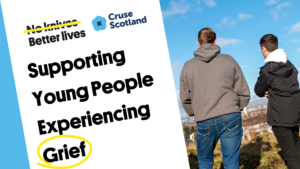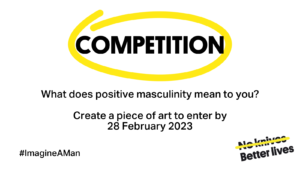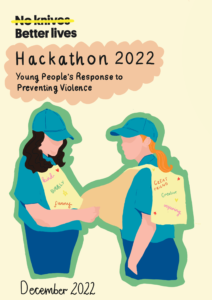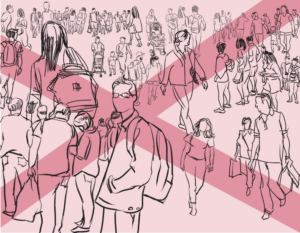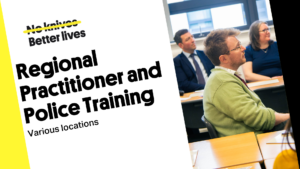Restorative Practices & NKBL
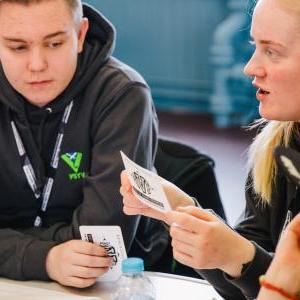
Last week we held our first No Knives, Better Lives Community of Practice. A community of practice is a network of individuals with common problems or interests who get together to explore ways of working, identify common solutions, and share good practice and ideas. The community of practice is part of our strategic response to enable practitioners to discuss and share problem-solving during this challenging time.
We invited Professor Gillean McCluskey, University of Edinburgh, to talk about restorative practices as part on our on-going exploration into integrating a restorative approach to support our existing work and offer for practitioners.
So what are restorative practices?
Professor Gillean McCluskey defined it as, “restoring good relationships when there has been conflict or harm and developing an ethos, policies, and procedures to reduce the possibility of such conflict and harm arising.” You may be more familiar with the terminology of restorative justice: formal restorative justice conferences involve facilitated dialogue between a victim and a person who has harmed.
In July 2019, the Scottish Government released a Restorative Justice Action Plan with the vision that restorative justice is available across Scotland to all those who wish to access it, and at a time that is appropriate to the people and case involved.
It is the preventative element of restorative practices we are most interested in; ‘reducing the possibility of such conflict and harm arising’ as this is in line with No Knives’ youth work approach – developing strong, protective relationships and conflict resolution skills with young people.
It is easy to see how this could further support the prevention of knife carrying. The preventative element of restorative practices are on the opposite end of the scale from restorative justice conferences but the theory, ethos and values behind it are the same.
Many of you may already be using this approach in your practice, even if you don’t explicitly refer to it as such. Restorative practices in action include:
- Circles (checking in and problem-solving)
- Restorative language and questions
- Restorative conferences
Professor McCluskey highlighted that taking a restorative approach will be particularly helpful as young people return to school and youth work after lockdown, both to re-establish relationships and to process their experiences.
We’ve listed some resources below that you could use to begin to introduce a restorative approach to your youth work. These key restorative questions may also help to shape your thinking:
- What happened?
- What were your thoughts at the time?
- How has this affected you and others?
- What has been the hardest thing for you?
- What you think needs to happen next?
Are restorative practices already present in your work? What difference has this approach made both to you and the young people you work with? Is this something you are interested in learning more about?
Comment below or join the conversation on Twitter @NKBLScotland.
Resources:
Education Scotland – Restorative approaches https://education.gov.scot/parentzone/additional-support/specific-support-needs/social-and-emotional-factors/restorative-approaches/
Restorative Practices Limerick – Resources http://www.restorativepracticeslimerick.ie/limerick-resources.html
